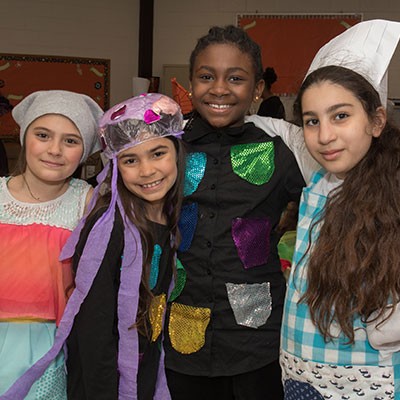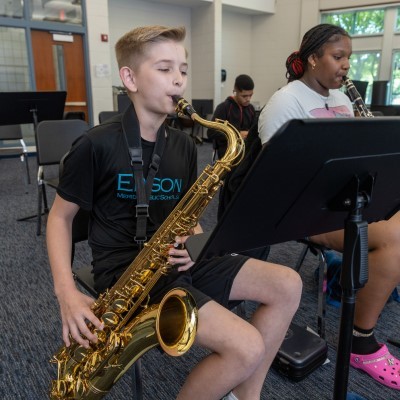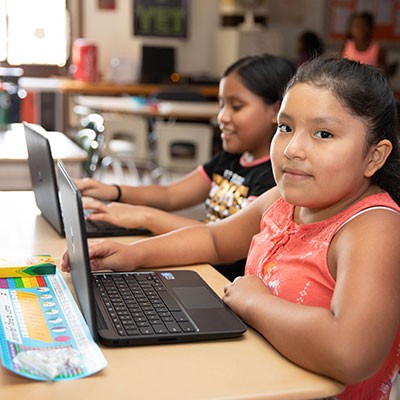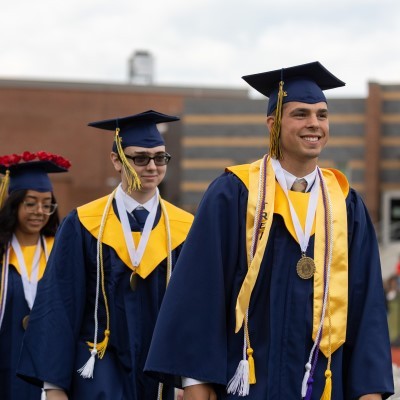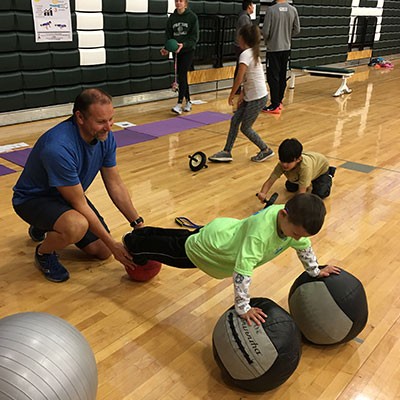U.S. Supreme Court Associate Justice Sonia Sotomayor exuded warmth and wisdom to an audience of about 800 people — including 175 students from John Barry and Hanover elementary schools — at Maloney High School Friday night.
Sotomayor was there to speak about her new children’s book “Just Ask,” a story of the challenges some children face and the differences they have, coupled alongside the skills they possess.
“That’s the thing that we have over everyone else who thinks that they are normal. We are much braver and a heck of a lot stronger,” she said.
Walking through the audience and addressing her remarks primarily to the children in attendance, Sotomayor answered questions and shook hands.
Sotomayor shared some insights into her childhood. She grew up poor in a housing project in the South Bronx. Her mom called her Hot Pepper, because she couldn't sit still. English was not her first language and because of that she struggled in her early school days. She lost her dad at age nine. She wrestled with diabetes from the age of seven.
“She’s such an inspiration to everyone. I want kids to have big dreams, to believe that anything is possible and that work matters. Obviously it is the right message for students to hear, but in this case it is coming from one of the most powerful people in the world,” said School Superintendent Mark Benigni.
Sotomayor’s message to students was a humane one — work hard, be kind, accept people, and seek opportunities to do good in the world. She encouraged them to push past the challenges they face and to think hopefully of their futures.
When asked by a child how one becomes a Supreme Court justice, Sotomayor inquired as to who the child admired. Steph Curry, the basketball star, the child responded.
“You simply cannot be successful in life being anything without studying and without working hard,” she said.
She encouraged the boy to learn about Curry’s life. “What you are going to find out is that he was on a basketball court shooting hoops for hours and hours and hours, teaching his body to aim so you don't miss no matter what … you don’t become a star because you are born a star. Everything you get to be is because you study hard and you work hard. That’s how you become a Supreme Court justice. That’s how you become anything,” Sotomayor said.
Oliviah Garcia, a student at Hanover Elementary School, studied Sotomayor’s career and watched her speak online. Given the scope and importance of Sotomayor’s work, Garcia wondered how it was possible that she remains a nice person.
Kindness is an intrinsic part of the way she wants to conduct her life, she said. “Life is precious. Every day you spend is a gift … I think of the miracle of being alive, and I try to squeeze as much out of my life as I can,” Sotomayor said.
Another student inquired as to whether Sotomayor thinks words have power? Sotomayor responded by asking the audience to think about the word bear. Then she asked them to consider whether it was a brown, black, or polar bear, whether it was down on all fours or standing. “One word can create a different picture in everyone’s mind,” Sotomayor said. “I think it is words that create the world.”
Sotomayor addressed the complexities of being a Supreme Court justice and wrestling with some of the most important issues society faces. But there is another part of the job of which she is very appreciative. “It gives me a stage where I can talk to people about a lot of the things that are important to me,” Sotomayor said.
Sotomayor addressed two of the children in the audience. “I have hope for the both of you. If you look at this world, you are going to realize that we as adults have failed you. We’ve left you a world where there is war, climate change, hunger, poverty, and health problems. We have lots and lots of things that need fixing. I believe that the two of you, and every kid in this room can do a better job than we did,” Sotomayor said.
Her hope for the future didn't let the adults in the room off the hook for making a better present. “Your job is to continue to make a better world. We can’t opt out of being participating citizens in communities … that takes everyone believing that we have a moral obligation to make a better difference in the end,” Sotomayor said.
The audience responded well to Sotomayor’s talk, leaping to their feet at the end and lining up around the auditorium to have their books signed.
Meriden native Gladys Nieves, a family support magistrate, attended with a group of her colleagues from the legal profession. “I thought it was amazing — very inspirational,” said Nieves, who was also moved by their shared Puerto Rican heritage.
Her friend Diadette Hernandez, a Meriden native and nurse practitioner, connected with Sotomayor’s struggles with language. “She reminded me to pull myself up when challenged. She is taking our young minds and giving them hope,” Hernandez said.
By Steven Scarpa, Special to the Record-Journal

